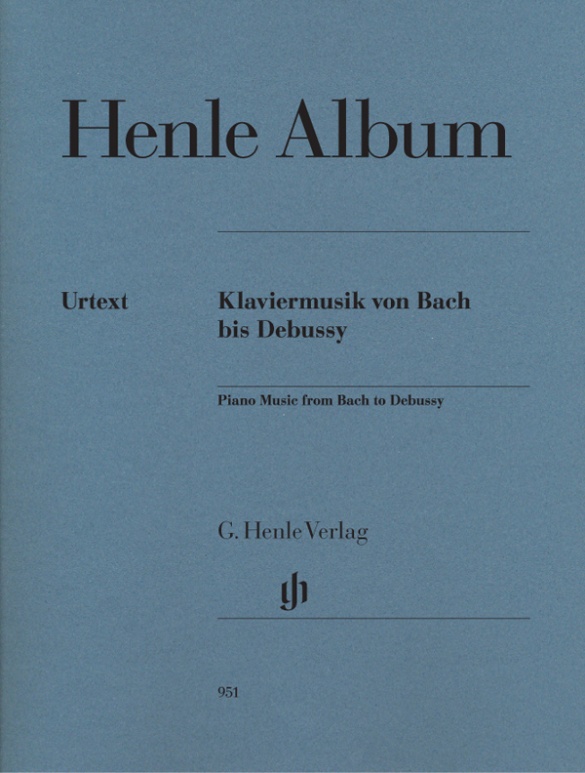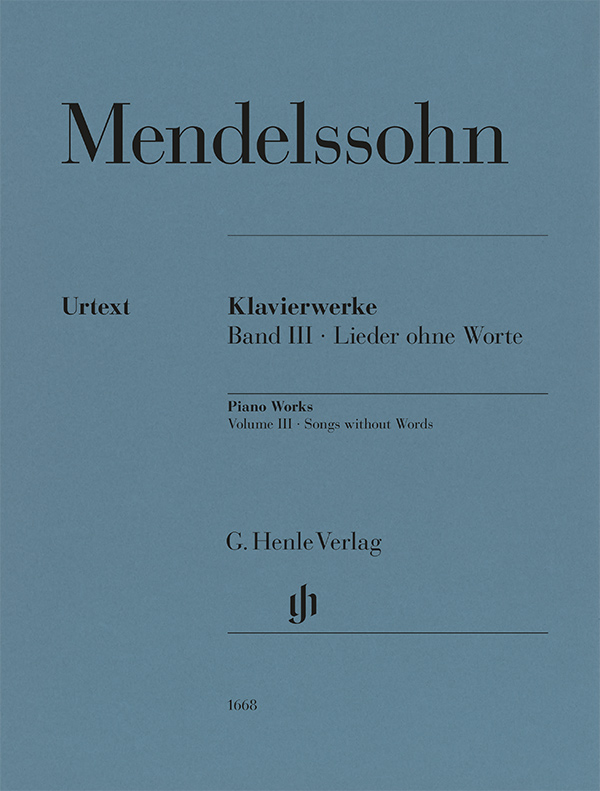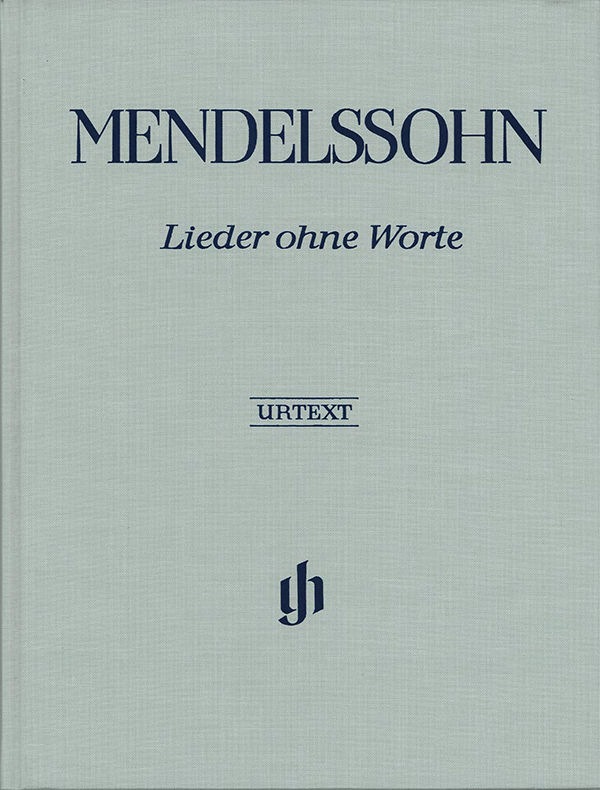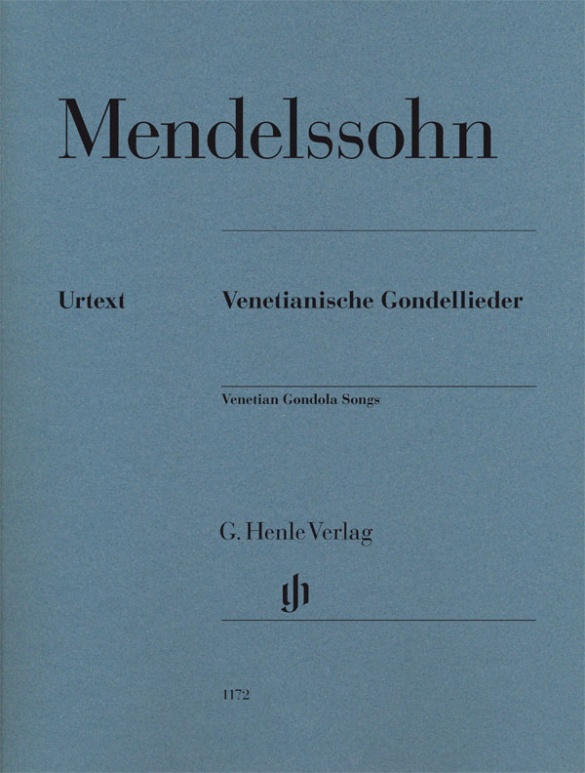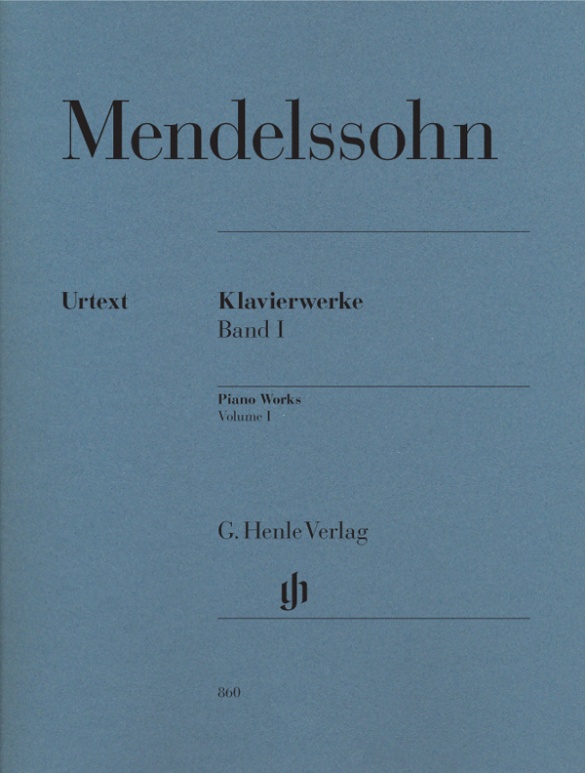

Felix Mendelssohn Bartholdy
Oeuvres pour piano, volume I
2009, l’«année Mendelssohn», nous donne l’occasion de publier maintenant, en plus du volume déjà disponible «Romances sans paroles», HN 327, la quasi totalité des compositions pour piano de ce maître en deux épais volumes (HN 860 et HN 861). Toutes les œuvres (cf. contenu) ont fait l’objet d’un travail éditorial scrupuleux et sont accompagnées de commentaires détaillés prenant en compte l’état actuel des recherches. Nous présentons ainsi l’unique édition Urtext au monde, aussi exhaustive, des œuvres pour piano de Mendelssohn.
En outre, les morceaux pour piano les plus joués de Mendelssohn (op. 14, 16, 54 et 72) existent également en édition séparée de prix modique.
CONTENU/DÉTAILS
(Explanation)
CONCERNANT LE COMPOSITEUR
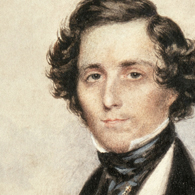
Felix Mendelssohn Bartholdy
Compositeur allemand, chef d’orchestre, pianiste et organiste qui de son vivant comptait parmi les plus importants compositeurs d’Europe. Déjà dans sa jeunesse il trouva un langage musical personnel: dans son œuvre qui aborde tous les genres se reflètent les tendances contradictoires de son temps, classicisme et romantisme. Ses efforts pour l’exécution des œuvres de Johann Sebastian Bach conduisirent de son vivant à la «redécouverte» du compositeur qui perdure sans faiblir jusqu’à nos jours. Son intense activité autour de Bach et son contrepoint a laissé de profondes traces dans sa technique de composition.
| 1809 | Né le 3 février à Hambourg dans une riche famille de banquiers. 1811 fuite avec les parents à Berlin. Premiers cours de musique auprès de sa mère. |
| 1819 | Devient l’élève de Carl Friedrich Zelter. |
| 1820 | Admission à la Singakademie de Berlin. |
| 1821–23 | 12 symphonies pour cordes. |
| 1825 | Octuor pour cordes en Mi bémol majeur op. 20. |
| 1826 | Ouverture du Songe d’une nuit d’été op. 21. |
| 1827 | Début de ses études à l’université de Berlin. |
| 1829 | Reprise de la Passion selon saint Matthieu de Bach à Berlin les 11 et 21 mars. Voyage en Angleterre et en Écosse. |
| 1829–30 | Symphonie «Réformation» en Ré mineur op. [107] avec intégration du choral «Ein feste Burg ist unser Gott». |
| 1830–32 | Grand voyage entre autres en Italie et en France. Concerto pour piano en Sol mineur op. 25, Ouverture en Si mineur «Les Hébrides ou La Grotte de Fingal» op. 26 (1829-1830). |
| 1833 | Chef de la musique à Düsseldorf. Symphonie italienne en La majeur [op. 90] (1830-33). |
| 1835 | Directeur des Concerts du Gewandhaus à Leipzig. |
| 1836 | Création de l’oratorio «Paulus. Oratorium nach Worten der heiligen Schrift» op. 36 à Düsseldorf. |
| 1838–44 | Concerto pour violon en Mi mineur op. 64. |
| 1840 | Composition du «Chant de louange. Symphonie-Cantate sur des paroles de l’Écriture sainte» op. 52. |
| 1841 | Berlin, au service du roi de Prusse. «17 Variations sérieuses» en Ré mineur op. 54 pour piano. |
| 1842 | Achèvement de la Symphonie n° 3 («Écossaise») en La mineur op. 56, qui commence avec des accents de lied. |
| 1843 | Musique pour le «Songe d’une nuit d’été» de Shakespeare op. 61. Directeur du Conservatoire de Leipzig qui vient d’être créé. |
| 1846 | Création à Birmingham de l’oratorio «Elias» op. 70. |
| 1847 | Quatuor à cordes en Fa mineur [op. 80]. Meurt le 4 novembre à Leipzig. |
About the Authors

Ernst Herttrich (Editeur)
Dr. Ernst Herttrich, born in 1942 in Würzburg, read musicology, history, German and theology at the universities in Würzburg and Cologne. In 1970 he earned his doctorate in Würzburg with a study of the expression of melancholy in the music of Mozart.
From 1970 to 1990 he was an editor at G. Henle Publishers in Munich, after which he was Head of the Beethoven Complete Edition for over 15 years. In 1999 he took over as Head of the Beethoven-Haus Publishers, and from 2001 was made Head of the Beethoven-Archiv, the research centre at the Beethoven-Haus.
He has been a visiting professor at Meiji Gakuin University in Tokyo and has undertaken several lecture tours both there and to Kyoto. His research interests include source studies, editorial techniques and music history. Herttrich’s publications include “Beethoven. Liederkreis an die ferne Geliebte” (Bonn 1999) and “Ludwig van Beethoven. Biographie in Bildern” (Bonn, 2000). Herttrich has edited over 100 Urtext editions for G. Henle Publishers.
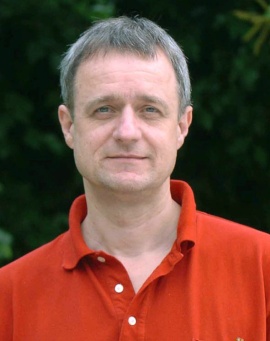
Andreas Groethuysen (Doigtés piano)
Prof. Andreas Groethuysen, born in 1956 in Munich, studied music with Ludwig Hoffmann in Munich and, on a scholarship from the “Studienstiftung des Deutschen Volkes”, with Peter Feuchtwanger in London.
After several years as a soloist, Groethuysen formed a piano duo with Yaara Tal, which has now become the focus of his artistic work. The duo regularly performs in many European countries, in Israel, China, North and South America. In exclusive cooperation with SONY CLASSICAL the internationally acclaimed piano duo has released a great many CDs – 28 to date – almost all of which have been awarded prizes.
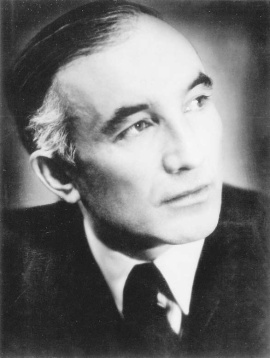
Hans-Martin Theopold (Doigtés piano)
Prof. Hans-Martin Theopold, was born to a pastor’s family in Detmold on 22 April 1904, the youngest of five children. Even as a child he often played the organ in the “Marktkirche” and soon began to take piano lessons with Theodor Vehmeier. At the age of 17 he made his debut at the Landestheater in Detmold with Ludwig van Beethoven’s Piano Concerto in C major under Friedrich Quast (Herford). Following the successful completion of his schooling at the Gymnasium Leopoldinum in Detmold, he went on to study music and piano (main subject): from 1922–23 at the “Württembergische Hochschule für Musik” in Stuttgart (with Max Pauer, 1866–1945) and then from 1923–1928 at the “Staatliche Akademische Hochschule für Musik” in Berlin-Charlottenburg (with Richard Rössler, 1880–1962, and Waldemar Lütschg, 1877–1948). After completing his piano studies (graduating with “very good”) in 1928, he began an active solo career both at home and abroad (USA, Switzerland, Scandinavia, the Baltic states, the Balkans). As a member of the Chamber Music Association of the State Opera in Berlin (from 1933) he also gave countless chamber music concerts, including ones with his violin partner Gustav Havemann (1882–1960).
In the 1930s, audiences and the press alike raved about Theopold’s extraordinary gifts as a pianist: “This young player has it in him to soon become one of the best players in Germany. A superior technique, a wonderful singing piano tone, the strength of a Titan, but not at all hard due to the incomparably gentle elasticity of his touch” [Münchener Zeitung, 21 November 1933]. – “H.M. Theopold gave convincing proof of his splendid pianistic ability in an extremely gripping sonata with a modern idiom by Alban Berg, but predominantly in Schubert’s […] Wanderer Fantasy, which he played with a polished technique and creative power” [Weser-Zeitung, 21 December 1932]. Theopold was awarded several prizes, including the “Grotrian-Steinweg-Preis” in 1928.
In 1937 Theopold became a teacher for the piano (main subject) at the “Bayerisches Staatskonservatorium der Musik” in Würzburg. In 1939 he married Irene Tatjana Wülfing, who was from Moscow. From 1943 he became head of the piano master-class at the “Nordische Musikschule” in Bremen, although this was interrupted by the events of the war. Following his return from a prisoner of war camp, Theopold gave concerts and taught although he did not hold a permanent position. From 1955–1956 he was acting head of the piano master-class at the “Bergisches Landeskonservatorium” in Wuppertal, finally being appointed Professor for Piano on 1 April 1956 at the “Staatliches Institut für Schul- und Volksmusik” in Detmold, later at the “Nordwestdeutsche Musikakademie Detmold” (today “Hochschule für Musik Detmold”), where he taught for decades. On 30 September 1969 he retired. “His students extol his pedagogical gifts. […] Humour, charm, helpfulness and kind-heartedness moderate the strictness of his professional ethos as a musician and teacher” (Lippische Rundschau, 23 April 1969; see also: Lippische Landeszeitung 22 April 1969 on the occasion of Theopold’s 65. birthday: “Prof. Theopold, a modest but at the same time energetic man, is an enthusiastic teacher”). Theopold died in Detmold in 2000.
Contact with Günter Henle was established directly after the publishing house was founded, when Theopold thanked the publishers with great enthusiasm for its first Urtext editions. His extensive correspondence with the publishing house was bequeathed to the Lippische Landesbibliothek in 2014 to ensure its long-term accessibility to the public. The letters testify not only to Theopold’s great interest in musical sources and text questions but also to his initial strict refusal (!) of fingerings in text-critical editions such as these: “For fingerings are and remain something individual no matter what their quality” (letter to Günter Henle from 26 May 1949 {publishing house archives}). Günter Henle was not, however, to be swayed and stressed the necessity of fingerings in his Urtext editions: “It is better to publish the Urtext […] with fingerings that are not necessary for a few individuals, or that might even, I admit, be considered irritating here and there” (letter to Hans-Martin Theopold of 17 September 1953).
It was only in 1955 that Theopold accepted Günter Henle’s offer of contributing fingerings for an Urtext edition that was in the process of being prepared by way of trial. (HN 74, Schubert, Complete Dances for Piano, Volume 1). Following this, Theopold was commissioned to write the fingerings for nearly all of the publishing house’s new editions in quick succession. Günter Henle, himself a good pianist, greatly valued Theopold’s fingerings, and also the many suggestions regarding the musical text in question. In addition, Theopold was always very reliable, thorough and conscientious – something that is not unimportant with editorial work!
Thus to date Hans-Martin Theopold has provided the fingerings for the greatest number of Henle Urtext editions by far – 226 editions (!) in total.
We would like to thank Mrs Margot Theopold and the Hochschule für Musik in Detmold for their great support in providing biographical material.
G. Henle Verlag
Informations sur la sécurité du produit

G. Henle Verlag
Vous trouverez ici des informations sur le fabricant du produit.G. Henle Verlag e.K.
Forstenrieder Allee 122
81476 München
Allemagne
info@henle.de
www.henle.com
Obwohl beide Bände zusammen auf die stattliche Zahl von über 500 Seiten kommen, lassen sich die Bände dank einer cleveren Bindung wunderbar blättern und unfallfrei auf den Notenhalter legen, ohne dass sich die eine oder andere Seite selbständig machen wollte. … Irgendetwas Neues findet sich immer – und gibt noch Jahre Anlass zum Vergnügen.
Piano News, 2009De uitgave is een voorbeeldig eerbetoon aan een componist wiens werk nogal eens aan wisselende waardering onderhevig is geweest. Hoewel beide delen zo’n 250 pagina’s dik zijn, slaan ze makkelijk open. Een heldere bladspiegel, logische omslagpunten, facsimilé’s, een historisch voorwoord en nauwgezette bronverantwoording, zoals we van Henle gewend zijn.
Pianowereld, 2009As with all Henle publications, there are scholarly notes explaining the different sources used for each piece and the greatest care has been given to fingerings and editorial directions. If you have not explored the music of Mendelssohn before or are a keen player you will find a lot to enjoy here.
Piano Journal, 20092009 marque la célébration du 200 anniversaire de la naissance de Mendelssohn(1809-1847). C'est l'occasion pour l'editeur allemand G.Henle Verlag de publier deux magnifiques volumes qui regroupent la quasi-totalité de de ses compositions pour piano, classées par ordre chronologique. Des commentaires détaillés prenant en compte l'état actuel des recherches accompagnet cette publication, qui constitute l'édition Urtext la plus exhaustive jamais présentée.
Pianiste, 2009Le opere sono state accuratamente riviste e commentate, accogliendo i risultati dei più recenti studi in campo musicologico.
Suonare News, 2009recommandations
autogenerated_cross_selling
Autres éditions de ce titre
Autres éditions de ce titre


